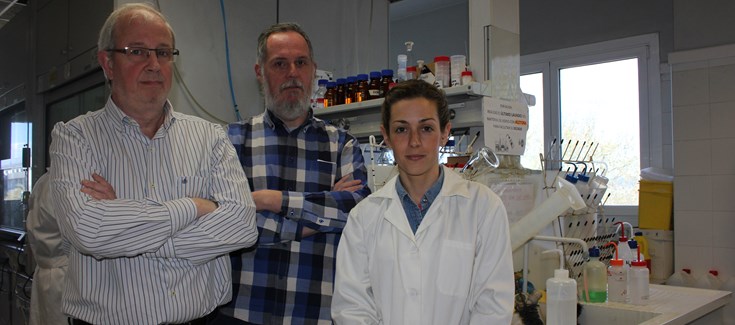Nanoparticles carrying the C9h peptide to induce apoptosis in cancer cells
Ramón Martínez Mañez, Scientific Director of NANBIOSIS Unit 26 NMR: Biomedical Applications II toguether with other Scientists from CIBER-BBN, the Institute of Biomedicine of Valencia-CSIC and University and Polytechnic University of Valencia, have developed, on a laboratory scale, a new system to cause the apoptosis in cancer cells.
Is consists on nanocapsules carrying a peptide – a small chain of amino acids – that would be released in a controlled manner to generate the apoptosis of the affected cells. “So far, we have worked with cellular models and the results obtained are promising,” says Ramón Martínez Máñez, director of the Interuniversity Institute for Molecular Recognition and Technological Development of the UPV and scientific director of the CIBER-BBN.
The main novelty of the work developed by the researchers is the encapsulation of the peptide. According to Martínez Máñez, the current problem of the use of these molecules in clinical therapies is their high rate of degradation and low bioavailability. In fact, a large number of peptide therapeutic products do not obtain approval by regulatory agencies due to these limitations.
“Blood plasma hosts more than 120 proteins, among which are numerous enzymes that degrade molecules. The encapsulation of peptides in mesoporous silica particles could be of general application to be administered in a controlled and effective way in clinical practice. In this case, when the nanoparticle enters the cells, the polylysine that covers the nanoparticles degrades and allows the peptide to be released and then induces the death of the cancer cell, “explains Jerónimo Bravo researcher at the IBV.
The use of the Institute of Biomedicine of Valencia-CSIC would also reduce the toxicity of the therapy, since they are less aggressive than the cytotoxics currently used to induce apoptosis of cancer cells. “In addition, the encapsulation allows to use less medication and would also reduce the side effects in patients,” says Jerónimo Bravo.
After its validation at laboratory scale, the next step would be the evaluation with animal models.
The work of the researchers from the Universitat Politècnica de València, the Institute of Biomedicine of Valencia-CSIC and the CIBER-BBN has been published in the latest issue of Chemistry-A European Journal.
Article of reference:
Cristina de la Torre, Leticia Domínguez-Berrocal, José R. Murguía, M. Dolores Marcos, Ramón Martínez-Máñez, Jerónimo Bravo, Félix Sancenón. ϵ-Polylysine-Capped Mesoporous Silica Nanoparticles as Carrier of the C9h Peptide to Induce Apoptosis in Cancer Cells. Chemistry-A European Journal. DOI: 10.1002/chem.201704161









